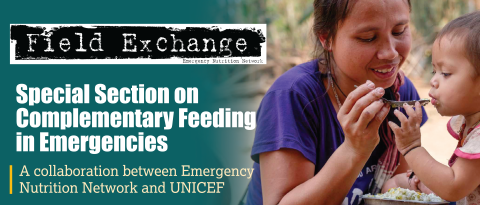en-net summary: Summer 2022
en-net is a free and open resource that helps field practitioners gain access to prompt technical advice in addressing operational challenges for which answers are not readily accessible. This article summarises some of the key en-net posts and debates which took place during the summer of 2022.
Contributions
Alessandro, Mohammed Al-Othmani, Andrea, Maryse Arendt, Brooke Bauer, Jay Berkley, Jodine Chase, Alison Donnelly, Michael Golden, Karleen Gribble, Rukhsana Haider, Dhiraj Karki, Vrinda Kiradoo, Marie McGrath, Mija, Isabelle Modigell, Pamela Morrison, Jules Maneraguha, Roberta Petrucci, Vicky Sibson, Daniel Takea
Over the summer period (June–August 2022), 35 questions were posted on en-net, generating 98 responses. Thirty-three vacancy notices and announcements were posted, which have accumulated 18,612 views on the website.
In the Management of wasting/acute malnutrition area, a discussion took place focusing on how to treat moderate acute malnutrition (MAM) cases presenting with medical complications, debating whether it was appropriate to admit them as inpatients and treat them as severe acute malnutrition (SAM) with all the accompanying nutritional and medical treatment. There are currently no WHO guidelines concerning the management of moderate wasting in children, although guidance for this area is anticipated in 2023, as a result of the current WHO guidelines review process. Discussants noted that there is great variation in the clinical presentation and progress of MAM patients with medical complications. To date, treatment has had to follow a pragmatic approach supported by comprehensive clinical evaluation.
To read more or to join this discussion, go to https://www.en-net.org/question/4632.aspx.
In the Infant and young child feeding interventions area, discussions included topics such as disparities in guidelines regarding the duration of boiling to ensure that the water used for infant formula is safe and that teats/bottles are sterilised, and whether this varies in different contexts; whether generic guidelines and tools for infant and young child feeding in emergencies (IYCF-E) social behaviour change communication are adequately adapted to different contexts and informed by locally specific formative research; how infant and young child feeding (IYCF) counsellors can respond to requests for infant formula from emergency-affected mothers/caregivers who are not eligible to receive it according to pre-established eligibility criteria; a search for examples of cash and IYCF messaging; and what distinguishes counselling from education in complementary feeding, and what good counselling looks like.
The forum area also hosted announcements to alert people to new resources, including the IYCF-E Hub, “a global portal to the most relevant resources related to infant and young child nutrition in humanitarian contexts!”, which offers the opportunity to filter search results by language including French and Spanish: https://iycfehub.org/.
You can subscribe to receive email updates on new research here: https://www.ennonline.net/ife/iycferepository.
To read more or join any of these discussions, visit the Infant and young child feeding interventions area: https://www.en-net.org/forum/4.aspx.
To join any discussion on en-net, to share your experience or to post a question, visit www.en-net.org.uk or www.fr.en-net.org.
For any feedback on the site, please write to post@en-net.org.


